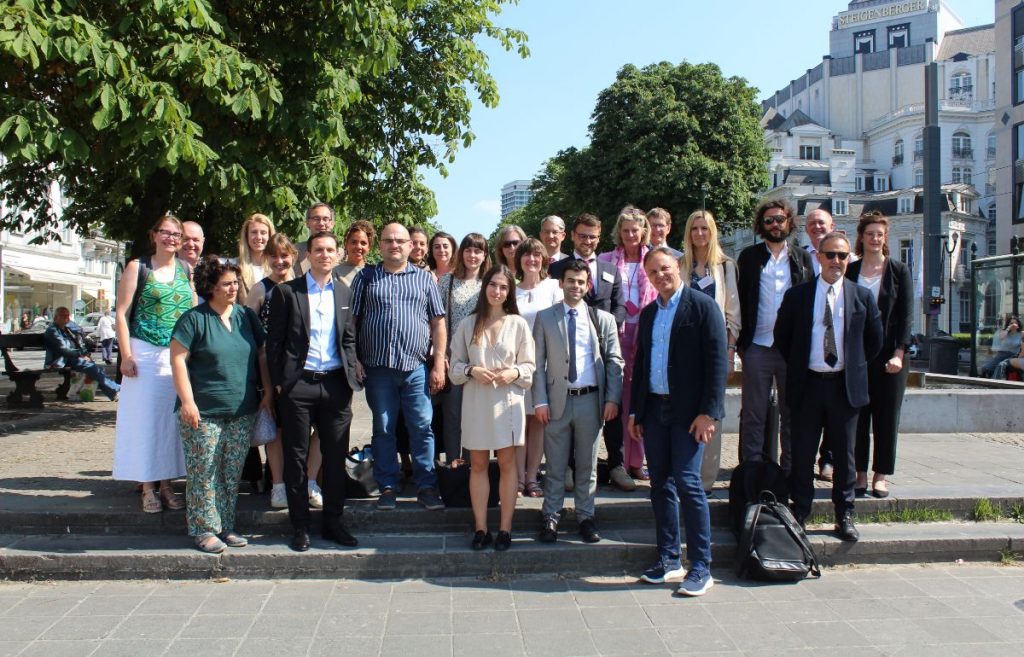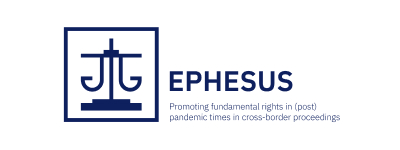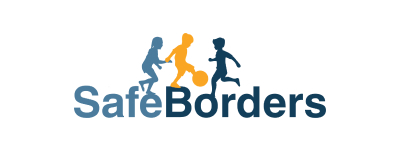Since its inception in 2008, the Council of the European Union Framework Decision (FD) 947/JHA, which aims to apply the principle of mutual recognition to judgments and probation decisions within the EU, has faced challenges in its implementation. The lack of adherence has led to limited practical application, hindering the smooth transfer of non-custodial measures among Member States. However, an ambitious project is committed to streamlining the implementation of this legal instrument through informative resources and awareness-raising interventions, ultimately enhancing the rehabilitation of foreign citizens sentenced to non-custodial judicial measures.
In a globalised Europe without internal borders, where individuals often reside outside their home countries, ensuring effective rehabilitation for offenders becomes a complex challenge. The ability to serve non-custodial sentences in their home communities plays a pivotal role in successful reintegration, but this is often difficult to achieve.
Despite the existence of FD 2008/947/JHA, an European legal instrument specifically designed for mutual recognition and cooperation among European Member States regarding probation measures and alternative sanctions, its full potential remains largely untapped. The instrument is significantly underused by judges and other justice professionals, partly due to a lack of familiarity with the framework’s practical application.
This knowledge gap poses a considerable obstacle to effective cross-border efforts in terms of offender rehabilitation, making it imperative to devise innovative solutions that could empower judges and justice professionals with the necessary expertise to leverage FD 2008/947/JHA to its fullest extent.
J-CAP Project: Advancing Mutual Recognition and Rehabilitation through Enhanced Judicial Cooperation in the EU
Recognising a pressing need for widening the utilisation of this legal instrument, the EU-funded project J-CAP – “Judicial cooperation for the enhancement of mutual recognition regarding probation measures and alternative sanctions” – aims to tackle this challenge.
The project strives to promote rehabilitation for foreign citizens by facilitating the implementation of FD 2008/947/JHA. J-CAP seeks to address the implementation challenges and bring about lasting positive change in the European judicial landscape through fostering knowledge-sharing and close cooperation among judicial authorities and its professionals.
J-CAP aims to achieve this goal both by developing a broad awareness-raising intervention while providing practical informative materials for judges, prosecutors, lawyers and probation professionals.
Developing a wealth of practical materials to assist justice professionals in implementing FD 2008/947/JHA
J-CAP has made significant strides towards its vision of fostering effective rehabilitation and mutual recognition across European borders. One of the essential resources developed is the Informative Materials document. It offers a glossary of the available probation measures and alternative sanctions for each of the countries involved in the initiative – Austria, Belgium, France, Italy, the Netherlands, Portugal and Romania –, including comprehensive information on the national authorities responsible for incoming and outgoing requests.
This is followed by structured overviews of each country’s national procedures concerning the application of FD 2008/947/JHA, as both the issuing and executing State.
Moreover, the release of J-CAP’s Guidance Booklet on FD 2008/947/JHA has provided justice professionals with practical guidelines detailing each step for the effective use of the Framework Decision. This includes the processes for evaluating reintegration prospects, identifying suitable sentencing options and probation decisions, and adequately handling the transfer certificate.

Developing a wealth of practical materials to assist justice professionals in implementing FD 2008/947/JHA
The second line in which J-CAP has been developing its action centres on a wide-ranging awareness-raising intervention. Accordingly, the J-CAP project consortium has organised several focused discussions on the main issues impeding the effective use of the Framework Decision and how to enhance both awareness and knowledge of this mutual recognition instrument.
J-CAP promoted a series of Thematic Workshops between December 2022 and March 2023, in each of the partner countries. These sessions brought together more than fifty justice professionals and experts to exchange experiences and insights on this topic.
The participants in the Thematic Workshop identified several challenges around utilising the FD, including practitioners limited knowledge of other Member State’s legal systems and sentencing practices. This lack of understanding leads to difficulties in determining the competent authority to forward certificates, non-compliance with time limits, and even inadequate filling out or submission of incorrect documents and translations. As a consequence, this ultimately hampers communication, cooperation and trust between authorities.
To address this issues, practitioners participating in the workshops emphasised the importance of increased cross-border training initiatives. Furthermore, the development of practical materials tailored to the needs of judges, prosecutors, and lawyers emerged as a crucial step in bolstering their proficiency in using the instrument effectively.
The workshops also underscored the necessity for increased awareness-raising activities which can better sediment this EU legal instrument in justice professionals’ day-to-day practice. All agreed on the need for projects such as J-CAP in this endeavour.
Moreover, the 1st Transnational Awareness Raising Symposium, held in Brussels, on the 13th and 14th of June 2023, marked the first of J-CAP’s international events. For two days, judges, prosecutors, lawyers and probation professionals from the countries represented in the project partnership had the opportunity to engage in lectures and debates and learn about case studies exploring non-fictional examples of challenging transfers, transnational procedural differences. and the resources that can facilitate justice professionals’ daily work.
This event will be followed by a second Symposium in September, 2023, and by a two-day international virtual conference, in November, 2023 open to all judicial practitioners who wish to learn more about FD 2008/947/JHA and the J-CAP project. Registrations for this latter event are now open.
Learn more about this project

JCAP
Judicial cooperation for the enhancement of mutual recognition regarding probation measures and alternative sanctions
The J-CAP project is coordinated by the IGO-IFJ – Judicial Training Institute (BE) and partnered by IPS_Innovative Prison Systems (PT), Agenfor International (IT), European Strategies Consulting (RO), the National School for the Judiciary (FR), the Netherlands Helsinki Committee (NL), and the Department of Applied Sociology of Law and Criminology at the University of Innsbruck (AT).
To know more about the J-CAP project please visit www.jcap-probation.eu
Related projects

REUNION
Rehabilitation of foreign inmates within the scope of FD 2008/909/JHA

MIRAD
Multi-Ideological Radicalisation Assessment towards Disengagement

EPHESUS
Promoting fundamental rights in (post) pandemic times in cross-border proceedings

NO-OBLIVION
Promoting Universal Jurisdiction while Evoking the Crimes Committed within the Former Yugoslavia

FAIR PRESONS
Fair predictions of gender-sensitive recidivism

SafeBorders
Strengthening Judicial expertise and Frontline support to combat Child Trafficking
Related news

New database supports judicial practitioners apply fairer pre-trial supervision in EU cross-border cases
Read More »



